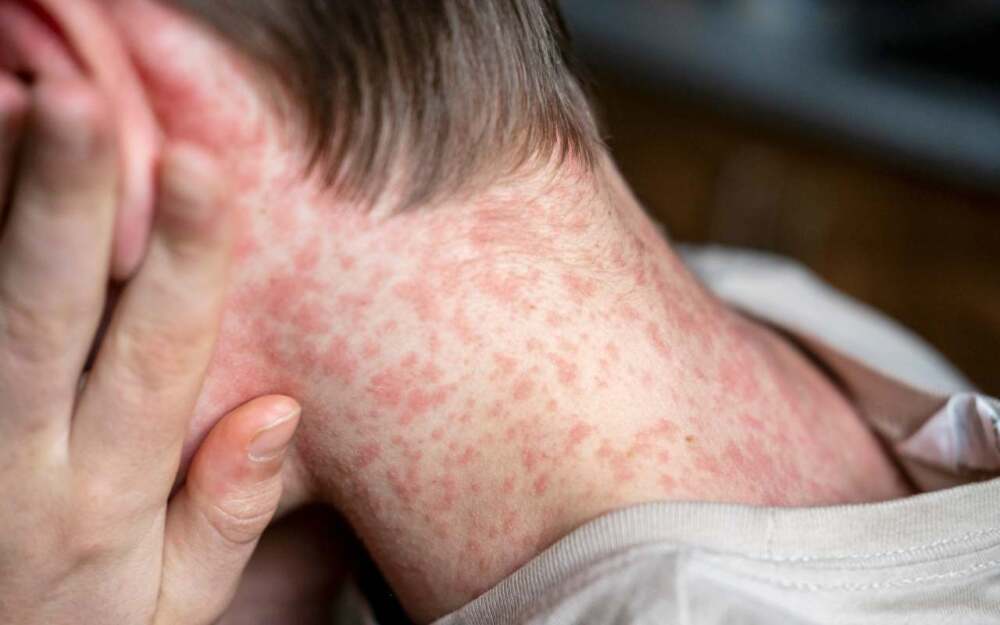A school-age child in Los Angeles County has died from a rare and devastating brain disorder called subacute sclerosing panencephalitis (SSPE), health officials have announced. The child contracted measles as an infant—too young at the time to receive the measles vaccine—and appeared to recover fully, only to fall seriously ill years later.
What is SSPE?
- SSPE is an incurable, progressive disease affecting the central nervous system. It is caused by a persistent infection with the measles virus.
- After the initial infection, which may seem to resolve, the virus remains in the body in a latent form. Over time—often several years later—it can trigger neurological deterioration including seizures, motor dysfunction, cognitive decline, vision loss, and other symptoms.
- Once SSPE becomes active, it worsens steadily and is almost always fatal within a few years.
The Case Details
- The child in this case had measles in infancy, before they were eligible for routine vaccination (which is typically given between 12 and 15 months of age).
- Although the child initially recovered from measles, signs of SSPE appeared years later, and the illness ultimately led to their death.
- According to public health experts, the risk of SSPE overall is low (about one in every 10,000 measles cases), but infants who contract measles before vaccination eligibility face a much greater risk—estimated at roughly one in 600.
Public Health Context
- Measles remains one of the most contagious viruses. While many recover, the disease can lead to severe complications—including SSPE, pneumonia, and encephalitis.
- This death comes at a time when the United States is seeing a marked rise in measles cases—higher than in many years—due in part to falling vaccination rates in certain areas. Health officials warn this trend increases the risk for vulnerable individuals, especially very young children who are not yet vaccinated.
What Health Authorities Are Saying
- Local health departments are urging parents and caregivers to check immunization records and make sure children receive the measles-mumps-rubella (MMR) vaccine on schedule. The typical schedule includes a first dose at 12-15 months and a second dose several years later.
- They also emphasize the concept of community (or herd) immunity: even infants who can’t yet be vaccinated are protected when enough people around them are vaccinated, because transmission is limited.
Why This Matters
- This tragic case is a stark reminder that the consequences of measles extend far beyond the immediate illness. Even after recovery, the virus can cause lethal long-term harm.
- It also demonstrates how vital vaccine timelines are—and how infants who are too young to receive vaccinations remain at elevated risk.
- The case underlines how falling vaccination rates imperil not only those directly unprotected but also those too young to be vaccinated or those with medical conditions that prevent vaccination.
Bottom Line
While SSPE is rare, this case shows its potential lethality and delayed onset. Measles is not a disease whose risks end when the rash fades for some—there may be hidden consequences that surface much later. Vaccination remains the most reliable defense, both for individuals and communities, especially in protecting those who are vulnerable.















Leave a Reply